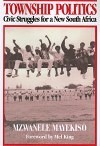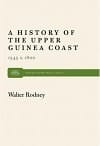Africa

This insider’s account of an extraordinary period of national political transition is also a primer on a new radical philosophy, the street–smart Marxism that developed in South Africa’s sprawling townships between 1985 and 1995 and rendered them ungovernable for the apartheid state. Mzwanele Mayekiso, a young leader of the “civics”—as South Africa’s popular community organizations are called—spent almost three years in prison as a result of the civics’ militant organizing. Here, he interlaces his personal story with caustic assessments of apartheid’s hand–picked township leaders, with rebuttals of armchair academics, and with impassioned but self–critical analyses of the civics’ struggles and tactics. He ends with a vision of an international urban social movement that, he argues, must be a crucial component of any emancipatory project. | more…

Cabral is among the great figures of our time — these texts provide the evidence. | more…

Amilcar Cabral, who was the Secretary–General of the African Party for the Independence of Guinea and the Cape Verde Islands (PAIGC), was assassinated by Portuguese agents on January 20, 1973. Under his leadership, the PAIGC liberated three–quarters of the countryside of Guinea in less than ten years of revolutionary struggle. Cabral distinguished himself among modern revolutionaries by the long and careful preparation, both theoretical and practical, which he undertook before launching the revolutionary struggle, and, in the course of the preparation, became one of the world’s outstanding theoreticians of anti–imperialist struggle. | more…

Walter Rodney is revered throughout the Caribbean as a teacher, a hero, and a martyr. This book remains the foremost work on the region. | more…

One of Africa’s most renowned philosophers and political leaders, Kwame Nkrumah was not only at the center of what he called “the African revolution,” but he also articulated its ideology. In this book he sets out his personal philosophy, which he terms “consciencism,” and which has provided the intellectual framework for his political action. | more…




